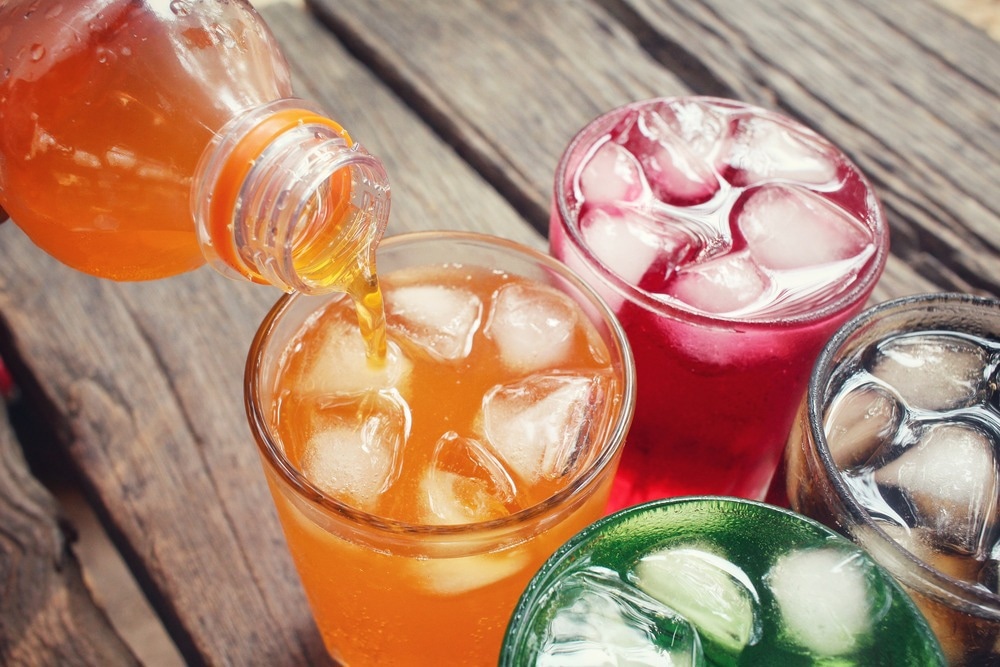In a latest examine printed in , researchers evaluated the potential cognitive and metabolic well being advantages of changing sugar-sweetened beverage (SSB) consumption with non-nutritive sweetened drinks amongst younger adults.

Background
SSB consumption, together with the consumption of carbonated power drinks, comfortable drinks, iced teas and coffees, and flavored milk and juices, types the primary dietary supply of elevated sugar consumption, rising cardiometabolic illness dangers.
As well as, animal and human research have reported that SSB consumption can result in cognitive impairments, particularly regarding hippocampal features and spatial reminiscence; nevertheless, eliminating SSBs from diets may ameliorate the results.
Concerning the examine
Within the current unblinded, three-group parallel design examine, researchers investigated whether or not SSB intake-reducing interventions equivalent to consuming low-calorie or unsweetened drinks may improve hippocampus-associated cognitive perform in people over 12 weeks (4.50 liters).
Younger, wholesome adults aged 18 to 35.0 years with BMI values between 17.5 and 30.0 who consumed greater than two liters of SSBs weekly had been recruited for the examine between April 2016 and September 2018.
The workforce assessed the results of a 12.0-week intervention whereby people [mean values for age (years) and body mass index (BMI) were 23 and 23.20, respectively] who frequently drank SSBs had been instructed to modify to both artificially-sweetened or non-nutritive ‘weight loss plan’ drinks (Food regimen group, 28 people) or water (Water group, 25 people) or proceed to devour SSBs equivalent to carbonated comfortable drinks (Sugar group, 27 people).
The first examine outcomes had been short-term modifications in verbal reminiscence and the waist circumference to peak ratio (WC:H), assessed at examine initiation, week 6.0 and week 12.0 of the intervention interval, and through 12.0 weeks of follow-up post-intervention. Cognitive modifications had been evaluated utilizing the logical reminiscence (LM) check.
Secondary outcomes included weight problems, BMI, serological lipid, uric acid, and glucose ranges, blood strain, and affective measures. As well as, the workforce investigated whether or not switching to unsweetened or low-calorie drinks altered the choice for sugary drinks by assessing modifications in liking for 5 concentrations (1.50%, 3.0%, 6.0%, 12.0%, and 24.0%) of sucrose options following the oral glucose tolerance check (OGTT) and examine intervention. Sweeteners equivalent to sucralose, aspartame, and acesulfame-Okay had been added to the weight loss plan drinks.
Physique fats was decided by bioelectrical impedance evaluation (BIA), and verbal fluency was assessed utilizing the Managed Oral Phrase Affiliation Take a look at (COWAT) check. SSB consumption and high-fat sugary meals consumption had been estimated utilizing the Temporary Beverage Consumption Questionnaire (BEVQ) and the Dietary Fats and Free Sugar-Quick Questionnaire (DFSQ), respectively, which had been crammed out by the members. As well as, the members accomplished the Revised Barratt Impulsivity Scale-Quick Kind (BIS-11) and the Melancholy, Anxiousness, and Stress Scale (DASS-21).
Outcomes and dialogue
Of the 118 people allotted to the examine teams, 97 accomplished the 12.0-week intervention, amongst whom 39 had been feminine, and 87 returned for follow-up evaluations 12.0 weeks post-intervention. Among the many examine members, the imply documented SSB consumption at baseline was 6.70 liters weekly.
The workforce noticed no statistically vital group variations between the examine teams within the major examine outcomes of metabolic well-being (WC:H) and reminiscence (hippocampal-dependent LM recalling), in addition to the secondary examine outcomes, together with impulsivity, verbal fluency, weight problems, glucose tolerance, or have an effect on.
Nonetheless, the liking for sturdy sucrose options (12% and 24%) was considerably decreased amongst people who switched to water. Common analysis of SSB consumption utilizing the BEVQ questionnaires and compliance assessments at weekly drink periods indicated that the 12.0-week examine intervention was tolerable and was adhered to by the vast majority of members.
Constantly elevated percentages for delayed-type recall had been noticed, with people reciting 90.0% of the information recalled by them in the course of the acute recall check, in accordance with prior research, however elevating the chance of ceiling results and reducing the flexibility to find out the affect of the examine intervention. Additional analysis should be carried out, incorporating tougher kinds of check batteries.
The workforce administered the COWAT and the LM (rapid and delayed) checks 30.0 to 60.0 minutes after consuming glucose for the OGTT. Earlier research have reported that acute consumption of glucose can enhance acute recall of verbal reminiscence, elevating the chance of acute check efficiency facilitation and obscuring group-based variations resulting from prior consumption of glucose.
BEVQ information indicated that the typical SSB consumption was 3.0 liters weekly within the follow-up interval, indicating that the water recipients and weight loss plan drink recipients resumed consuming SSBs post-intervention, whereas the SSB recipients decreased their SSB consumption in relation to the interventional consumption (4.50 liters weekly).
Nonetheless, amongst all three teams, the information represented a major SSB discount in relation to pre-intervention estimates of 6.0 liters weekly. As well as, DFSQ information indicated a statistically vital lower in self-documented frequencies of sugar and fats consumption at week 6.0 and week 12 of the intervention, with better declines within the water recipients and weight loss plan drink recipients, indicating that the people additionally decreased their consumption of sugar-coated stable meals gadgets.
Conclusion
General, the examine findings confirmed no vital short-term impression of changing SSBs with artificially-sweetened drinks or water on the metabolic and/or cognitive well being of the youth. The elevated consumption of Western diets probably obscured the potential well being advantages of lowering SSB consumption over 12 weeks.